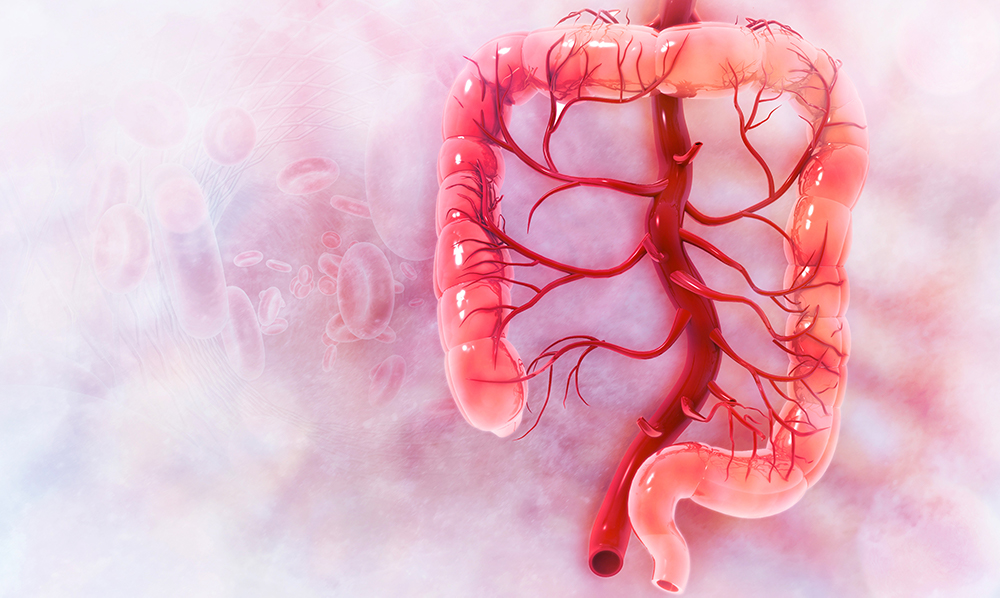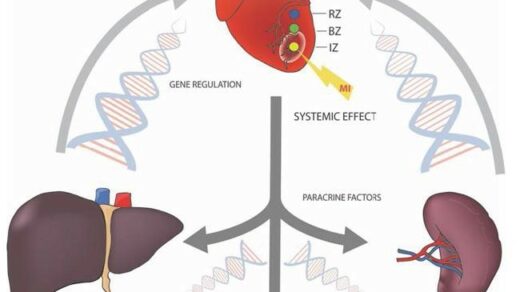In the cover paper published in Oncotarget’s Volume 12, Issue 24, researchers investigated the underlying mechanism behind an elevated protein and its receptor in colorectal cancer.

According to the Centers for Disease Control and Prevention (CDC), colorectal cancer is the second leading cause of cancer death in the United States. Researchers have observed elevated levels of the macrophage inflammatory protein CCL20 in colorectal cancer. Interactions between CCL20 and its receptor, CCR6, promote colorectal cancer through effects on neoplastic epithelial cells and modulation of the tumor microenvironment. However, the mechanism of these effects are not yet fully understood.
“In particular, CCL20 acting on CCR6 expressed by colorectal cancer neoplastic epithelial cells induces proliferation [1, 8, 12–15], migration [12, 14–17], and initiates an auto-feedback loop by inducing further secretion of CCL20 [8]. The mechanisms through which CCL20-CCR6 interactions elicit these effects is poorly understood.”
Researchers—from the VA Boston Healthcare System, Harvard Medical School, Beth Israel Deaconess Medical Center, Dana-Farber Cancer Institute, and Brigham and Women’s Hospital—conducted a study investigating the signaling pathways and mechanisms that underlie this colorectal cancer-promoting molecule. In 2021, the team authored a research paper, which was chosen as the cover paper of Oncotarget’s Volume 12, Issue 24, and entitled, “CCL20 induces colorectal cancer neoplastic epithelial cell proliferation, migration, and further CCL20 production through autocrine HGF-c-Met and MSP-MSPR signaling pathways”.
The Study
The researchers experimented with two human colon cancer cell lines (HT-29 and HCT116). Cells were cultured and then analyzed using ELISA kits. The cells were stimulated with CCL20 and then the mRNA of cell lysates were measured through quantitative real-time polymerase chain reaction (qRT-PCR) technology. The researchers used qRT-PCR to monitor chain reactions, signaling pathways and the production of hepatocyte growth factor (HGF) by colorectal cancer cells at various time points. Both scratch wound healing and cell proliferation assays were conducted to measure proliferation, migration and furter CCL20 secretion. For further analysis, the researchers used colon adenocarcinoma expression data from The Cancer Genome Atlas. They used statistical analysis to compare their data.
“In this study, we show that CCL20 stimulation induces hepatocyte growth factor (HGF) production and phosphorylation of its receptor c-Met by colon cancer neoplastic epithelial cells. We also observed that HGF induces colorectal cancer cell migration and CCL20 production. Similarly, we found that CCL20-dependent colorectal cancer cell migration and CCL20 production are mediated through HGF. We demonstrate that CCL20 induces HGF-dependent ERK1/2 phosphorylation in neoplastic epithelial colorectal cancer cells and that CCL20-dependent colorectal cancer cell migration and CCL20 production are mediated by ERK1/2. Last, we observed that CCL20-dependent proliferation is mediated by macrophage-stimulating protein (MSP) but not HGF.”
Conclusion
Overall, the team demonstrated that elevated CCL20 induces proliferation, migration and further secretion of CCL20 by neoplastic colorectal cancer cells through pathways mediated by autocrine secretion of growth factors. CCL20-mediated migration and CCL20 secretion were shown to be regulated through a pathway involving HGF, its receptor c-Met, and ERK phosphorylation. However, CCL20-mediated proliferation was demonstrated to be independent of HGF/c-Met signaling. Instead, it was observed to be regulated through MSP and its receptor MSPR. The researchers were forthcoming about limitations of this study and note that further studies are necessary to elucidate the role of these signaling pathways in vivo. This research expands the possible options available for researchers to target colorectal cancer.
“To our knowledge, the findings that CCL20 induces secretion of HGF and phosphorylation of c-Met and that this pathway mediates the effects of CCL20 in eliciting migration and further secretion of CCL20 by colorectal cancer cells have not previously been reported in the literature.”
Click here to read the full research paper, published by Oncotarget.
YOU MAY ALSO LIKE: More Oncotarget Videos on LabTube
—
Oncotarget is a unique platform designed to house scientific studies in a journal format that is available for anyone to read without a paywall making access more difficult. This means information that has the potential to benefit our societies from the inside out can be shared with friends, neighbors, colleagues, and other researchers, far and wide.
For media inquiries, please contact media@impactjournals.com.




